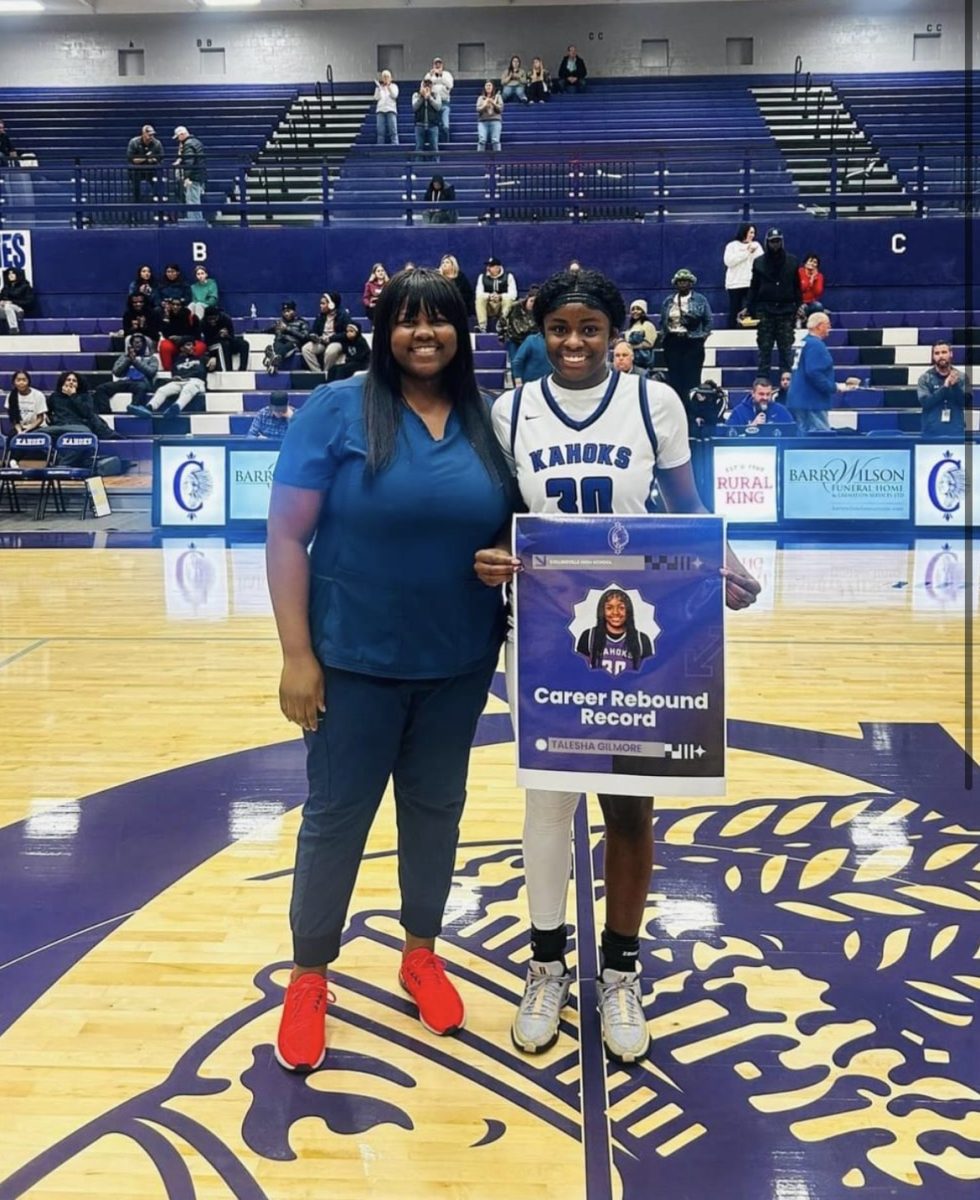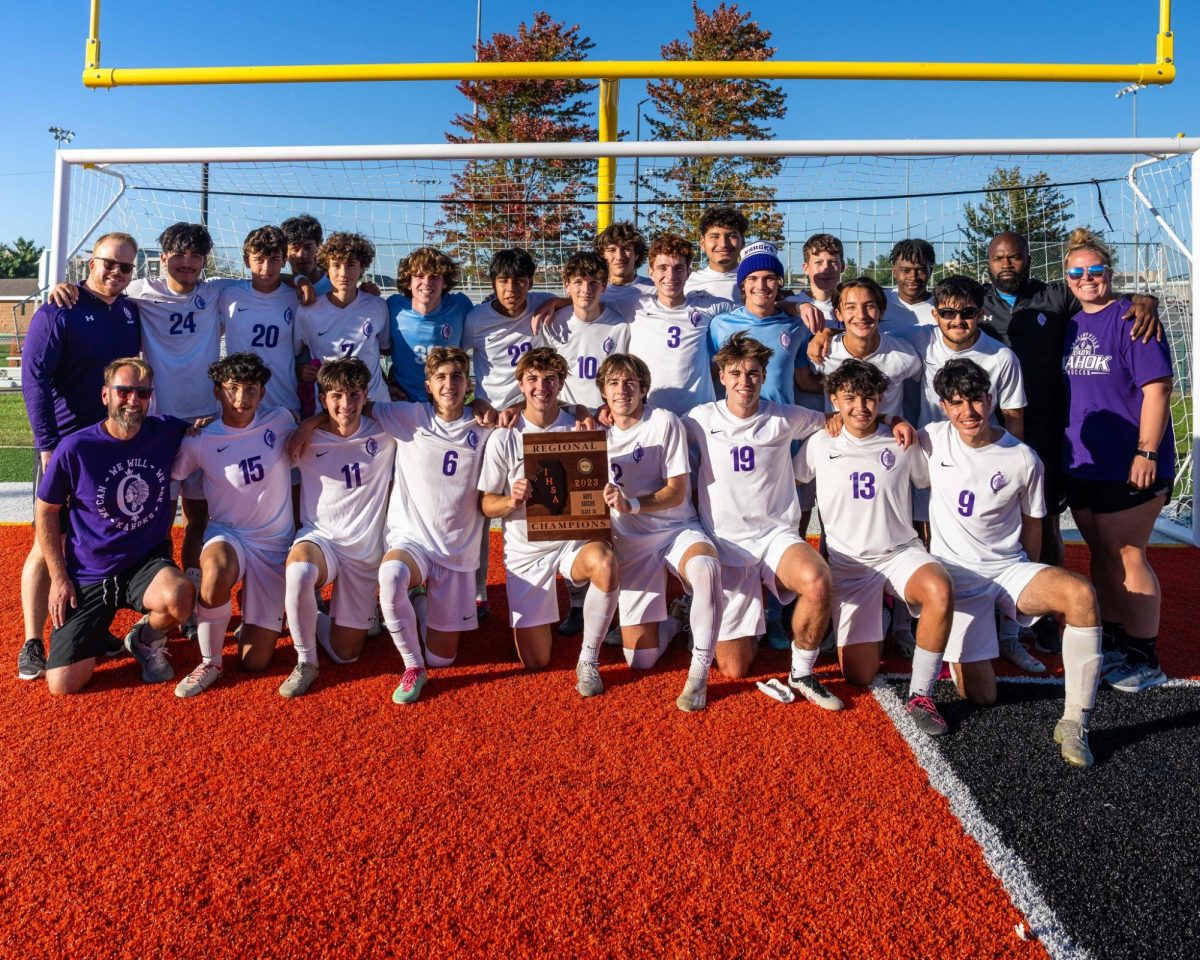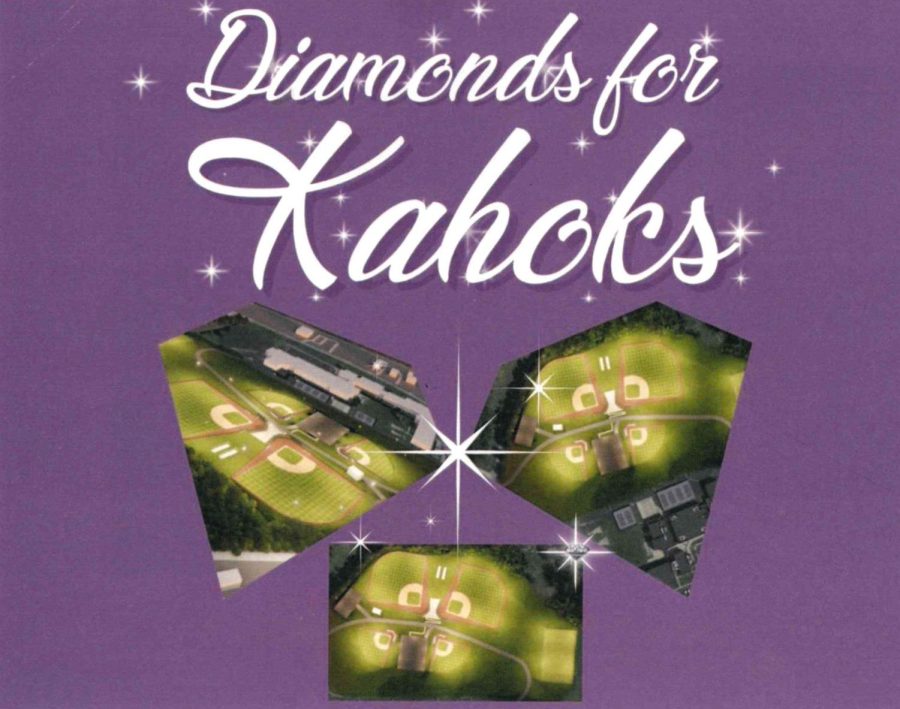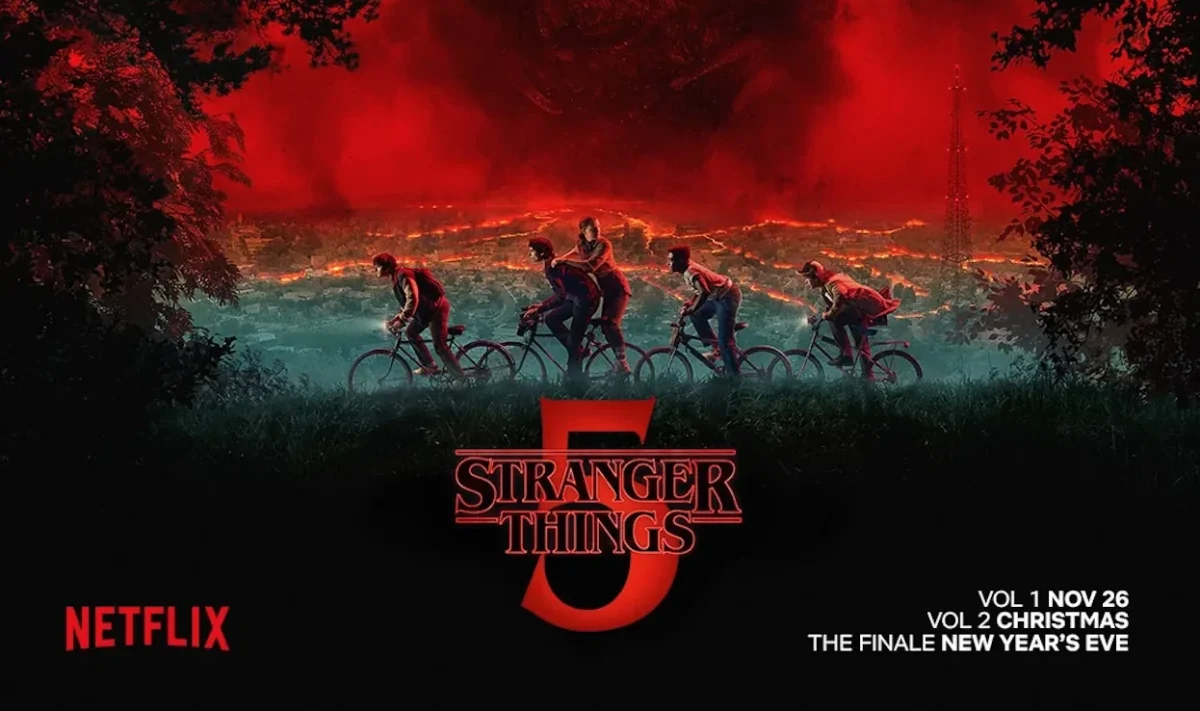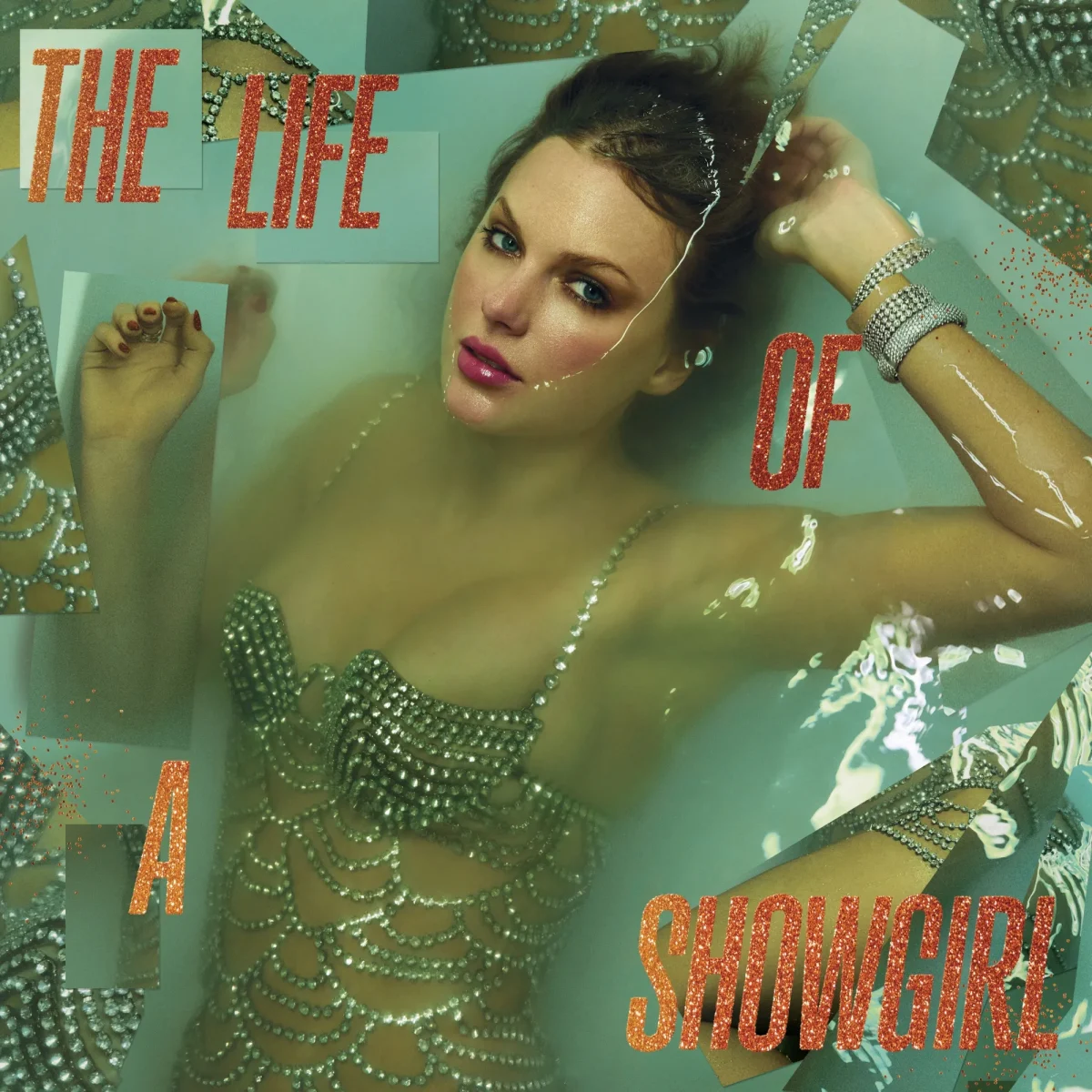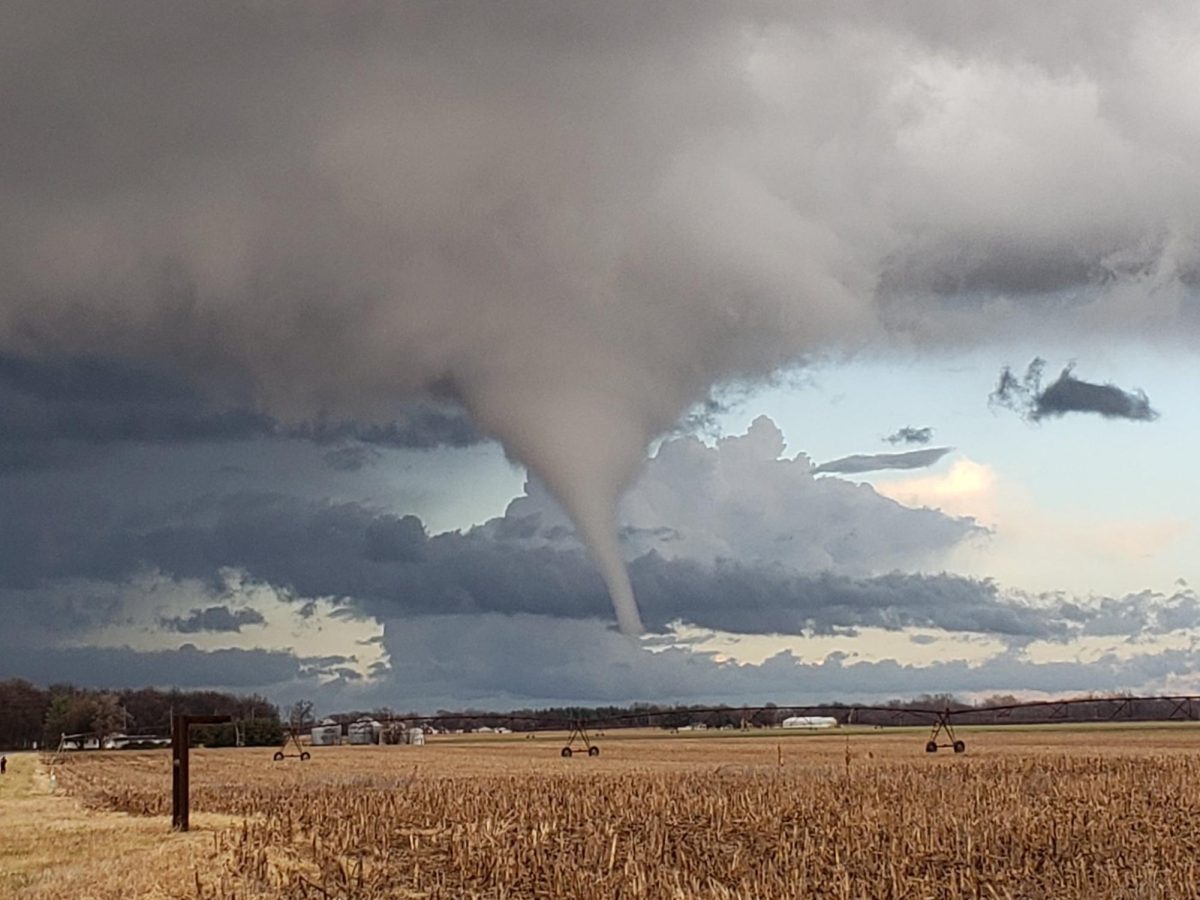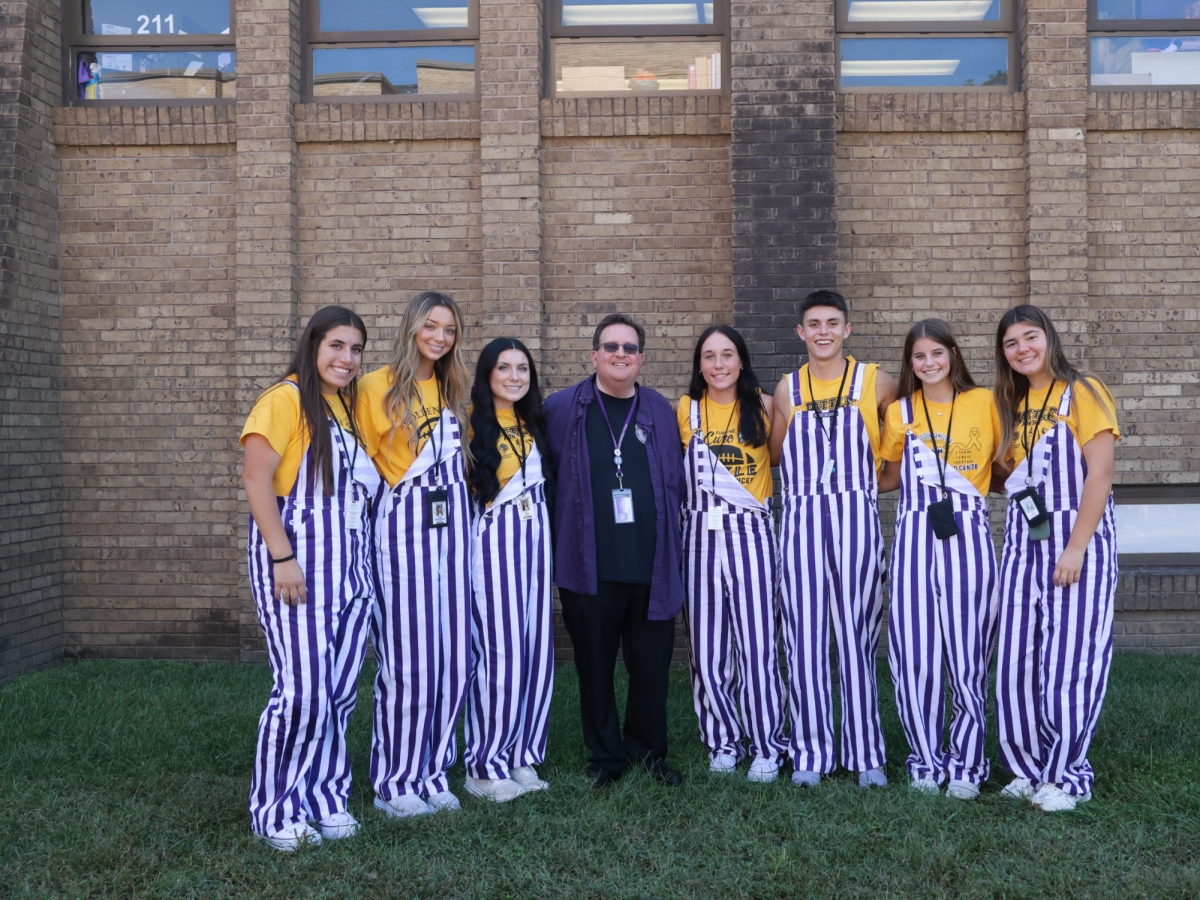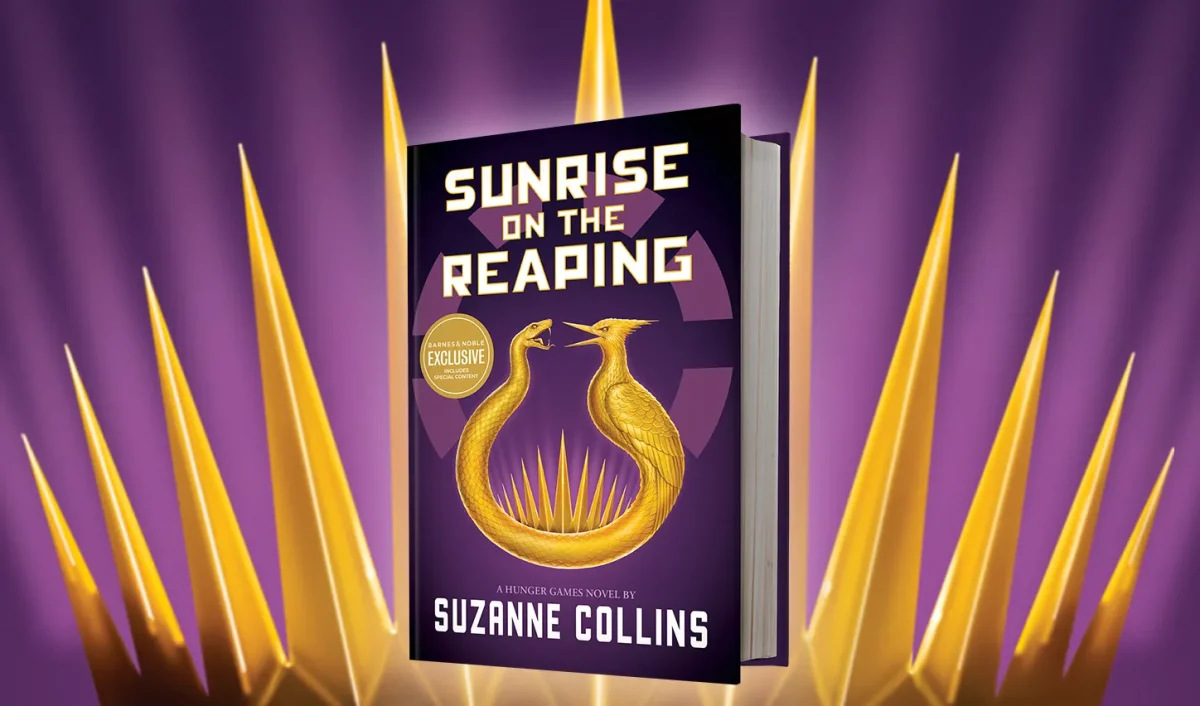*This article will contain no spoilers for Sunrise on the Reaping.*
“When you’ve been set up to lose everything you love, what is there left to fight for?” – Suzanne Collins, Sunrise on the Reaping
Suzanne Collins is back at it and better than ever. On March 18, 2025, the fifth newest installment in the Hunger Games franchise was released. Sunrise on the Reaping, follows the 50th anniversary of the Hunger Games from the point of view of Haymitch Abernathy, the victor from that year.
This novel serves as a prequel to the events in the main trilogy of Hunger Games novels (“The Hunger Games”, “Catching Fire”, and “Mockingjay”, released in 2008, 2009, and 2010 respectively). However, the events come after those which happen in “The Ballad of Songbirds and Snakes” (2020).
The series takes place in the dystopian future society of Panem, which is located in North America. Panem is made up of The Capitol and 12 districts, each district with its own specialization, (Luxury, Masonry, Technology, Fishing, Power, Transportation, Lumber, Textiles, Grain, Livestock, Agriculture, and Coal Mining). The Capitol, President Snow specifically, holds complete authoritarian control over the districts, and Capitol citizens live a life of comfort and splendor while the district citizens live in poverty and squalor.
“Sunrise on the Reaping” takes place 50 years after the conclusion of The Dark Days, a period of war when the districts rebelled against The Capitol. The Capitol won this war, and as punishment the districts enacted the Hunger Games. Every year, one boy and one girl between the ages of 12 and 18 are chosen at random from each district and put in an arena to fight to the death, until one remains. The games are supposed to serve as a reminder to the districts that The Capitol has complete control over them, and that uprising and rebellion won’t be tolerated.
Every 25 years, the games celebrate what is called a “Quarter Quell,” another reminder of the war and The Capitol’s control. The Quarter Quell games introduce a “challenge” of sorts to that year’s games, and for the second-quarter quell, each district is to send double the amount of tributes to the games, two boys and two girls each.
“I think we put our children at an enormous disadvantage by not educating them in war, by not letting them understand about it at an early age.” – Suzanne Collins
What makes “The Hunger Games” so important as a series? One of its main purposes, according to the author, is to educate children about war and its repercussions. Inspiration struck one day while she was browsing TV channels and flipped between reality TV shows and news channels showing clips of the Iraq War. Colins states simply, “I don’t write about adolescence. I write about war. For adolescents.” When writing the series, Colins wanted to take the themes, ideas, and concepts of war and boil them down to allow for younger audiences to understand what war really is.
Collins also has stated before that she does not write unless she feels that she has something to say, often about the state of the government and the world. Knowing this, it would make sense that we would get a new book at a time of such political conflict and division. The book provides social commentary in a way that is digestible to a wide age range, with many of the themes becoming more apparent as the reader grows older.
“You don’t forget the face of the person who was your last hope.” – Suzanne Collins, The Hunger Games
How could it be that the series is still garnering so much success 15 years after the release of the end of the trilogy? How is one book enough to revive an entire fanbase? For one, the themes of the books are just as applicable to the world today as they were all those years ago. The series has aged incredibly well, with very little if anything at all feeling out of date (which makes sense considering it takes place in a distant future).
Another factor keeping this fanbase consistent is the wide variety of ages the series appeal to. Those who read the series when it first released or at younger ages can revisit the series years later with a new understanding of the world and take new things from the book.
For example, I read the original trilogy when I was 11-years-old, not even as old as the youngest children in the reaping. I read this story of 17-year-olds, and at the time they seemed so much older than me that I felt farther removed from them. Regardless of this, I still greatly enjoyed the books. Now at age 17, reading “Sunrise on the Reaping”, I see these stories and these characters in a whole new light. I am now at the same age, and even older, than many of the characters in this series. After finishing “Sunrise on the Reaping” in just a few days, I have decided to reread the original trilogy to see how much my understanding of the story has changed over the course of six years.
“As long as you can find yourself, you’ll never starve.” – Suzanne Collins, The Hunger Games
In conclusion, “The Hunger Games” as a series is incredibly well written, and can be thoroughly enjoyed by a large audience. I could not recommend these books enough to anyone who enjoys young adult novels, dystopian stories, war stories, or stories that can serve as social commentary. And for those who are interested in the series and its themes, but maybe don’t enjoy reading or can’t find the time, the film adaptations of these novels are also incredibly well made and portray the same themes.




